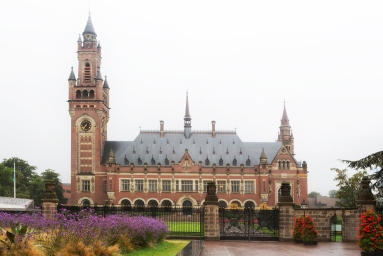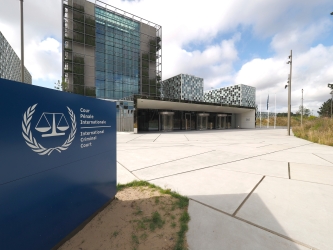
In October 2016, South Africa followed Burundi in withdrawing from the International Criminal Court (ICC) asserting bias by the United Nation’s Security Council in its case referrals (Duggard, 2013; Strydom, 2015; The East African, 2016). They point out that the United Nations Security Council has referred cases from Sudan and Libya with only black Africans brought before the court (BBC, 2015). South Africa and other African states charge that the ICC has “lost its direction” (Strydom, 2015). Established in 1959, the European Court of Human Rights (ECtHR) is another exemplary supranational court. The United Kingdom’s (UK) Conservative Party pledges to sever ties with the ECtHR (Travis, 2015) as it impinges on British sovereignty (Watt, 2015). The previous Labour Party government was supportive of the ECtHR and continues to support it while in opposition (Hansard, April 26, 2016). During the last half century, there has been a marked increase in the number of supranational courts and the number of acceding states. Having acceded, however, why do states sever ties with supranational courts?
In acceding, states delegate legal decision-making authority to supranational courts (Helfer and Slaughter, 1997). As the highest court in the judicial system, the final appellate court is the last judicial forum reviewing legal challenges. A central issue for all states, therefore, is the organization of the judiciary and its role in furthering “peace, order and good government” (POGG) as a feature of constitutional rule (Yusuf, 2014). The final court lends legitimacy to the policies of the governing coalition, which Dahl (1957) describes as the congressional “lawmaking majority” (284). This legitimizing role makes the judiciary an important participant in the national decision-making process (Dahl, 1957) as governing coalitions pursue their visions of POGG. It is itself, therefore, a “national policy maker” (Dahl, 1957). Shapiro (1964) refers to this notion as “political jurisprudence” (16). As challenges to policies percolate up the judicial hierarchy, legitimization of those policies by the judiciary is an important issue (Dahl, 1957). Reliance upon a supranational court as the final appellate court is seemly incompatible with the modern notion of sovereignty (Swinfen, 1987). I suggest, therefore, that the governing coalitions will seek to remove the supranational court if it perceives a disconnection with the court. This perception is influenced by changes in the political environment that make the state more sensitive to a court over which it has no direct control. If the governing coalition perceives a disconnection with the court, the remedy is to replace it with a national court. I suggest that states sever ties when they perceive the court as incompatible with the policies goals of the governing coalition. This potential juncture is a function of a change in the political environment that increases the disconnection between the governing coalition and the supranational court. At that juncture, it is more likely that the governing coalition will abandon the court. The importance of the political will to effect change was summarized by the former President of the New Zealand Court of Appeal, Sir Thaddeus McCarthy. He stated in 1976 that he had no doubt that the questions surrounding severing ties with the JCPC “are ultimately political questions” (Richardson, 1997).

I assert that the political environment can be captured in three categories – drastic change, subtle change, and no change. I define the categories as follows: (1) no change – the state does not experience any change in the political environment when a new governing coalition comes to power with a commitment to the constitution and the continued good governance of the state. This does not preclude law reform, but does not fundamentally change the relationship between the state and its citizens. While there may be a new governing coalition after an election cycle, the basic tenets of a free political environment continue. The new coalition basically pursues the same broad policies but pledges to do a better job; (2) subtle change – the election of a governing coalition with a new vision that underpins new domestic and international policies (Elordi, 2000). These are pursued without fundamental systemic changes to the governing institutions or the rights and liberties of the citizens of the state. While this may also involve constitutional changes, the changes do not fundamentally change the governance landscape (Grace, 2015); and (3) drastic change – includes the promulgation and adoption of a new constitution that fundamentally changes the governing institutions, as well as the rights and liberties of the citizens of the state. In other words, these changes generally alter the relationship between the citizens and the state, or they expand or reduce the range of fundamental constitutional rights (Grace, 2015; Thoburn v Suderland City Council, 2003). Though the process may differ, drastic and subtle changes increases the likelihood that ties with the supranational court will be severed but no change maintains the status quo.
There is evidence that supranational courts will continue emerge in the world community (Specht, 2015). As supranational courts such as the ICC, the ECtHR, the International Court of Justice, the Caribbean Court of Justice, the Inter-American Court of Human Rights and the African Court on Human and People’s Rights continue to adjudicate and other courts emerge around the proliferation of international law, understanding the dynamic relationship with states is crucial. Ultimately, ties with supranational courts depends much less on the performance of the court. It is the governing coalition’s emergent political will in a changed political environment that drives the relationship with the court. The future of supranational courts, therefore, depends on the domestic political environment that influences governing coalition commitment to development and vibrancy of supranational courts.
About the author: Harold Young is an Assistant Professor at Austin Peay State University in Clarksville, Tennessee. His research area is Public Law and examines an American and comparative perspective on judicial institutional changes and decision making. In his previous lives, he was a social worker, a health communications project manager and an attorney-at-law. He can be reached via email at youngh@apsu.edu.
